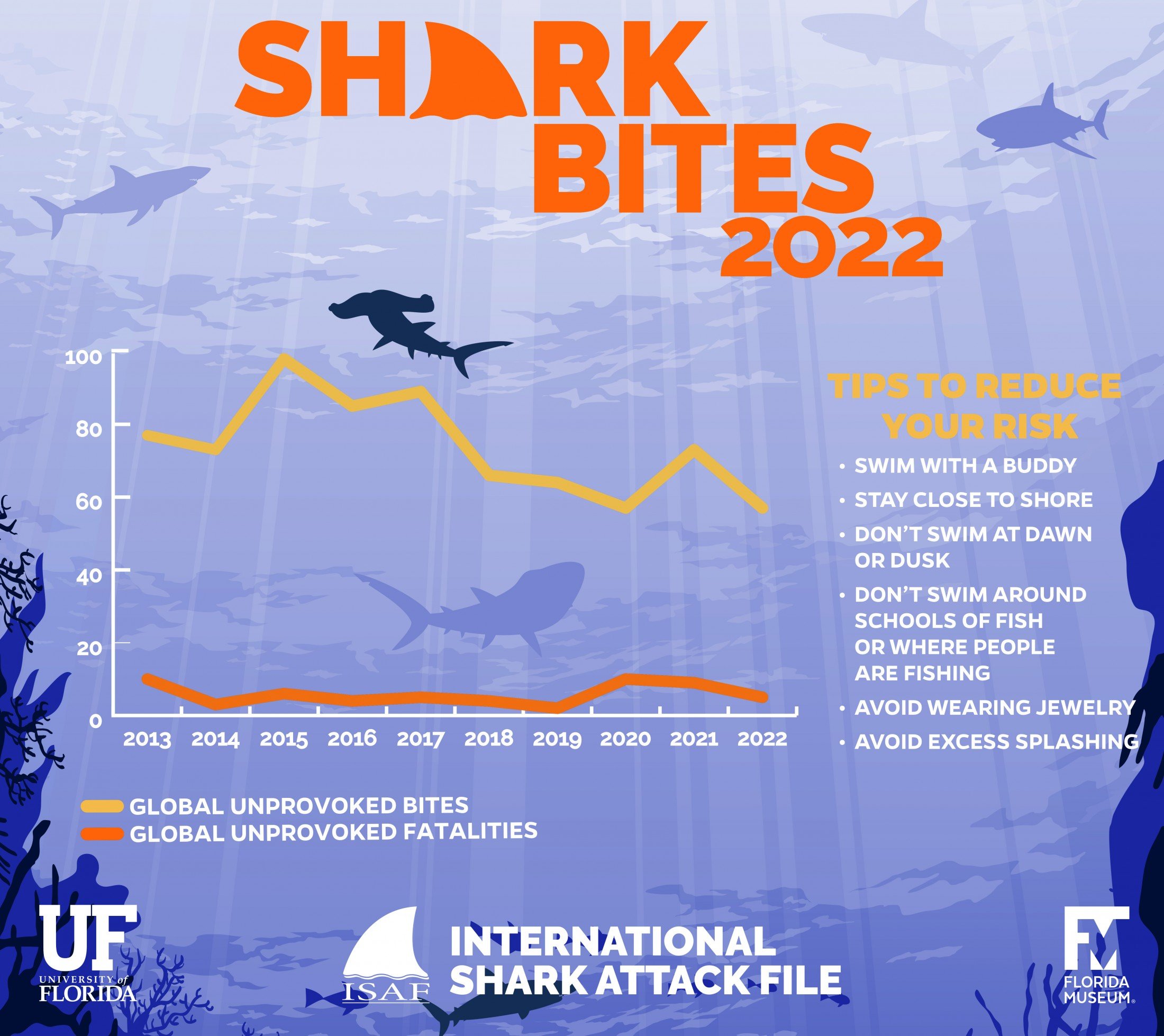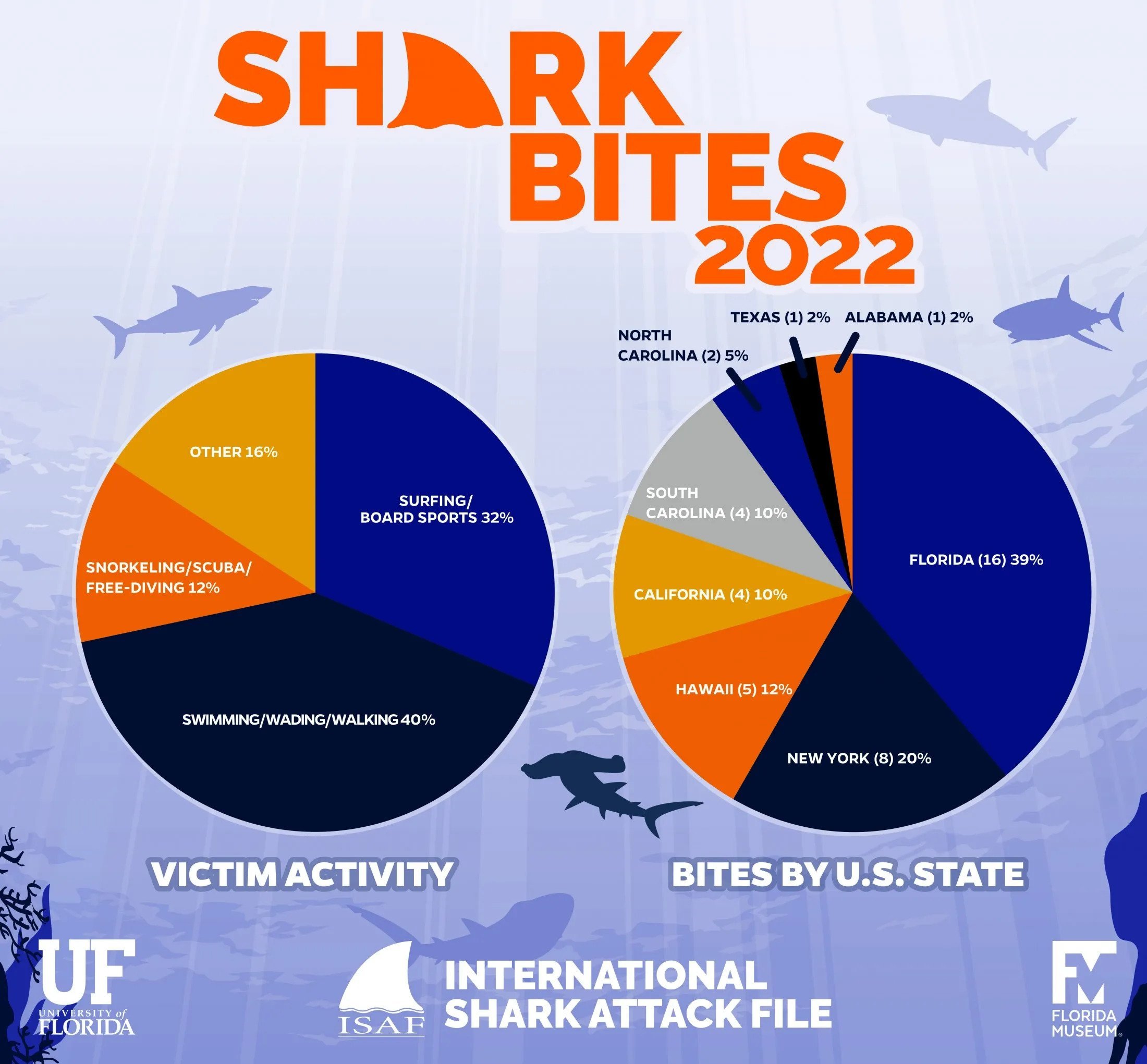International Shark Attack File 2022: Shark attacks at their joint lowest level for a decade, but why?
The International Shark Attack File (ISAF) has announced that with 57 unprovoked shark bites in 2022, it is the joint lowest number recorded for the last decade.
That's in marked contrast to the 73 unprovoked bites from 2021, and the latest released figures tying with those for 2020, the latter which was largely attributed to less people going to the beach and taking part in water based activities due to Covid-19.
Five of those shark attacks from 2022 were fatal, which again is down for nine from 2021 and 10 from the year before that, so what do the figures show us?
Primarily, it shows it just how rare shark encounters and deaths that occur from them are.
But the people behind the ISAF, the world’s only scientifically documented comprehensive database of all known shark attacks, have suggested that it could partly be down to decreasing shark numbers.
“Generally speaking, the number of sharks in the world’s oceans has decreased, which may have contributed to recent lulls,” Gavin Naylor of the Florida Museum of Natural History said.
If that were the case though, then we'd have likely seen a steady decline in attacks over the last decade or so.
“It’s likely that fatalities are down because some areas have recently implemented rigorous beach safety protocols, especially in Australia,” said Naylor, the director of the Florida Program for Shark Research.
With improved safety covers everything from more shark spotters, better first aid facilities on beaches or the increased use of drones spotting sharks ahead of them reaching populated beaches.
These latest numbers are both good news for those using the water and for the reputation of sharks, but that doesn't mean those in the water can become compartment, they still need to be shark aware and know when and where it is safe to go back in to the water.
You can read the full International Shark Attack File for 2022, here.



